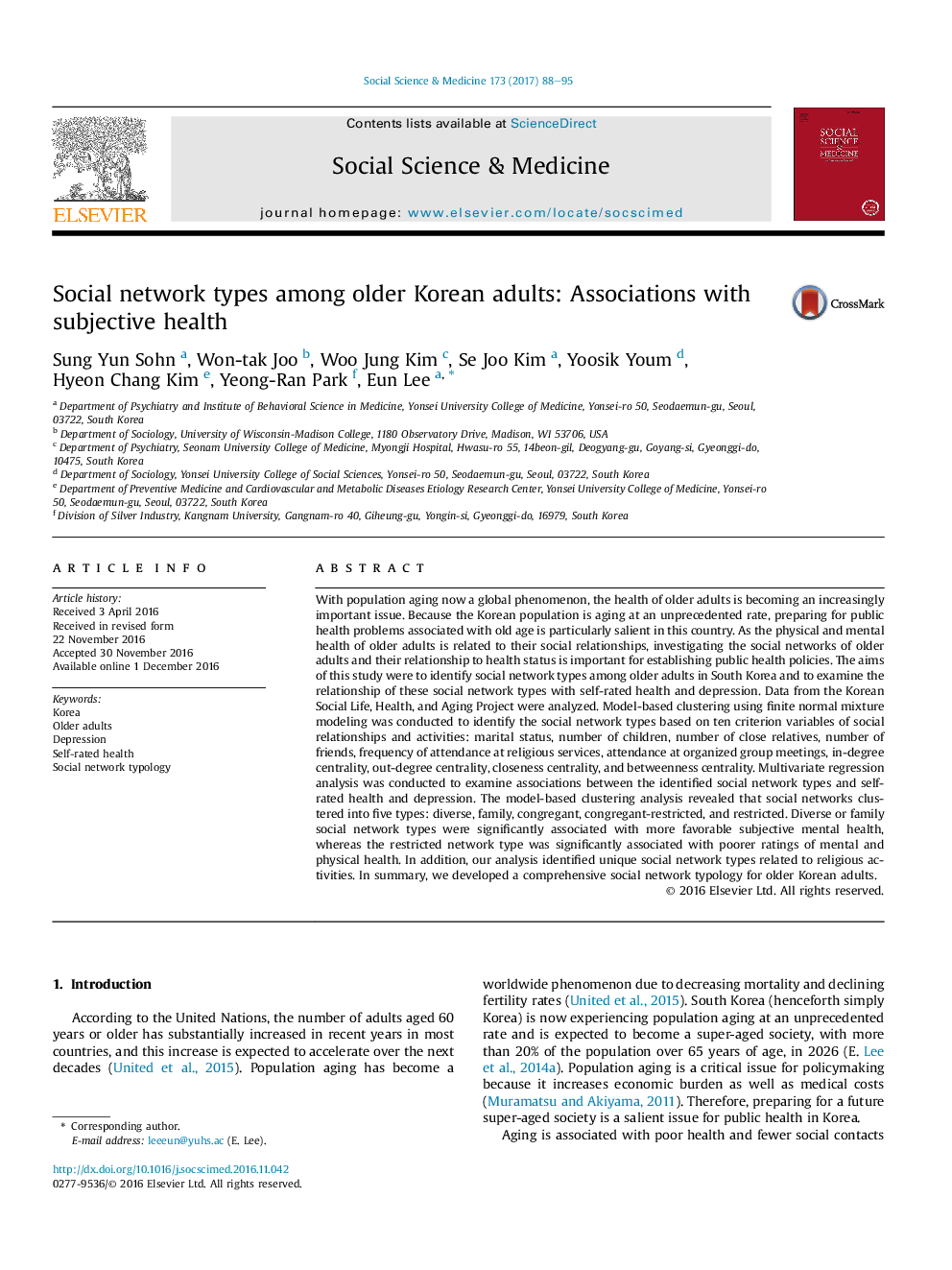| کد مقاله | کد نشریه | سال انتشار | مقاله انگلیسی | نسخه تمام متن |
|---|---|---|---|---|
| 5046773 | 1475996 | 2017 | 8 صفحه PDF | دانلود رایگان |
- The study identified social network types among the older adults in South Korea.
- We also examined the relationship of network type with health and depression.
- The clustering analysis identified 5 types.
- Diverse or family types were associated with favorable subjective mental health.
- This study developed comprehensive social network typology for Korean older adults.
With population aging now a global phenomenon, the health of older adults is becoming an increasingly important issue. Because the Korean population is aging at an unprecedented rate, preparing for public health problems associated with old age is particularly salient in this country. As the physical and mental health of older adults is related to their social relationships, investigating the social networks of older adults and their relationship to health status is important for establishing public health policies. The aims of this study were to identify social network types among older adults in South Korea and to examine the relationship of these social network types with self-rated health and depression. Data from the Korean Social Life, Health, and Aging Project were analyzed. Model-based clustering using finite normal mixture modeling was conducted to identify the social network types based on ten criterion variables of social relationships and activities: marital status, number of children, number of close relatives, number of friends, frequency of attendance at religious services, attendance at organized group meetings, in-degree centrality, out-degree centrality, closeness centrality, and betweenness centrality. Multivariate regression analysis was conducted to examine associations between the identified social network types and self-rated health and depression. The model-based clustering analysis revealed that social networks clustered into five types: diverse, family, congregant, congregant-restricted, and restricted. Diverse or family social network types were significantly associated with more favorable subjective mental health, whereas the restricted network type was significantly associated with poorer ratings of mental and physical health. In addition, our analysis identified unique social network types related to religious activities. In summary, we developed a comprehensive social network typology for older Korean adults.
Journal: Social Science & Medicine - Volume 173, January 2017, Pages 88-95
